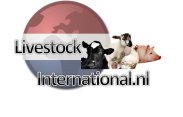
The Livestock Dialogue
The Global Agenda for Sustainable Livestock, a.k.a. as the Livestock Dialogue, unites the forces of key representatives of the public and private sector, farmers, civil society and community-based organizations, and research and academic institutions from the livestock sector in an open multi-stakeholder platform. It was formulated in 2010 at the initiative of the Netherlands. Its goal is to work together in addressing the sustainability challenges that the livestock sector faces. The Global Agenda is led by the FAO.

The Global Agenda addresses the following challenges:
- In 2050, the demand for animal products will be roughly 70% higher than to date, as a result of population growth and rising incomes. This would make livestock the fastest growing sector in agriculture. The growth will be concentrated in emerging and developing countries and will be accompanied by intensification and expansion. Simultaneously with the rising demand, livestock provides opportunities for economic growth, job creation, and poverty reduction.
- In a business as usual scenario, this growth would bring a huge increase in demand for raw materials and unsustainable pressure on natural resources, combined with a sharp increase in greenhouse gas emissions, (animal) health issues, and local environmental problems. Clearly alternative scenarios need to be pursued.
- Many technical options exist for improving production efficiency, reducing greenhouse gas emissions, recycling nutrients, improving animal welfare, and protecting biodiversity. However, application of these technologies is not straightforward and requires concerted efforts.
- The issues around resource availability and environmental impact that the agenda focuses on, so far got too little international attention, as compared to e.g. (animal) health and welfare issues.
Priority areas
The partnership focuses on three priority areas where improving practices will bring large environmental, economic, social benefits:
- Closing the efficiency gap - This theme focuses on the application of existing technology ( in the broad sense ) in countries with rapid growth of the livestock sector, but who still suffer from a lack of technical and management capacity. This can be achieved in resource use efficiency. From a global perspective, the biggest gains in the coming years.
- Restoring value to grassland - 26 % of the global land surface is pasture land. About 50 % of the grassland is degraded. Improving grassland management can contribute significantly to increasing livestock production and poverty reduction, but also to CO2 sequestration and biodiversity conservation.
- Waste to Worth - In emerging economies the problem of eutrophication increases rapidly, along with expansion and intensification. Awareness is growing that better spatial planning and better fertilizer use are necessary. Better nutrient management and recycling can contribute to curbing of deforestation and improvement of living conditions.
LEAP
The Livestock Environmental Assessment and Performance (LEAP) Partnership is an initiative of stakeholders across the livestock sectors, all who share an interest in improving the environmental performance of livestock supply chains. Its goal is to improve the environmental sustainability of the livestock sector through better metrics and data. It is unique endeavour to harmonize the environmental performance assessment and monitoring of livestock supply chains on a global scale. It is publishing guidelines that provide a consistent approach for assessing the environmental impacts of livestock supply chains. The draft guidelines were launched for public review in March 2014.
Further steps for the agenda
During the October 2013 Global Multi-Stakeholder Meeting of the Livestock Dialogue in Ottawa, the Dutch Implementation Agenda for Sustainable Livestock was presented. Through its focus on the need for a shared vision, a comprehensive agenda, and a multi- stakeholder approach, this presentation played an important role in the discussion and the final conclusions of the meeting.
Importance of the Global Agenda
The partnership enhances the shared understanding of development issues and builds consensus on the path towards sustainable food security through dialogue, consultation, and joint analyses. Consensus forms the basis for stakeholder commitment to innovation and investment in practice change that contributes to large environmental, social and economic gains.
For the Netherlands, with its strong international orientation in livestock, a functioning global platform for livestock is important. With its knowledge of sustainable livestock farming the Netherlands can make a valuable contribution to the global challenges. Simultaneously, through its active participation the Netherlands gets access to strategic knowledge networks, thus better preparing Dutch business for the international market.
For more info see http://www.livestockdialogue.org/focus-areas/en/
